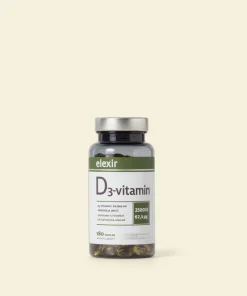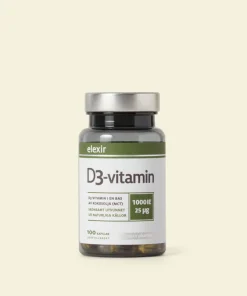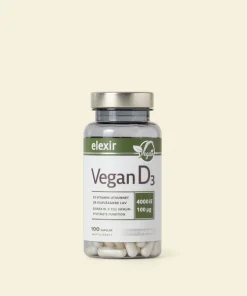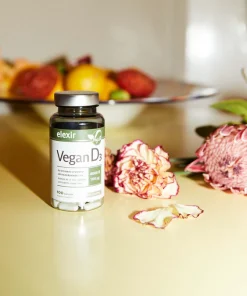Vitamins
The difference between vitamin D2 and D3
Vitamin D is a fat-soluble vitamin that is also considered a steroid hormone. It occurs in two main forms, D2 and D3. Both forms provide improved vitamin D status in the body, but there is some difference between the two and how they are metabolized.
What is vitamin D-3?
Vitamin D3 , also known as cholecalciferol, is the form of vitamin Dwhich animals and humans naturally produce when exposed to the sun. When the skin is exposed to sunlight, a precursor to D3 is formed through unsaturated fat on the skin. This precursor is an inactive form of the vitamin that is absorbed through the skin and absorbed into the blood. It then continues its transport to the liver and kidneys for continued synthesis to form the active form that can be used by the body. The sun is therefore our absolute best source of vitamin D. D3 is also found in food and especially in fatty fish such as salmon, herring and mackerel, as well as D-enriched dairy products. A certain amount can also be found in meat, poultry and eggs. Animal D3 in food supplements usually comes from wool fat, but there are also supplements of D3 extracted from lichen,
What is Vitamin D2?
Vitamin D2, also known as ergocalciferol, is produced by certain plants when exposed to UV light in a similar way that our bodies produce D3 when exposed to the sun. Vitamin D2 is found in mushrooms such as porcini mushrooms and chanterelles. D2 can also be found in some algae. Vegetable supplementation of D2 is extracted from mushrooms.
The difference between D2 and D3 in the body
The two forms of vitamin D have a very similar chemical structure, with the difference that D3 has an extra double bond and methyl group. The metabolic pathway for both forms of vitamin D is the same, regardless of the source. Both undergo two hydroxylation steps, meaning that a hydroxyl group (OH) is added to the molecule at each step. The first step occurs in the liver, where vitamin D is converted to 25-hydroxyvitamin D. The second hydroxylation step occurs in the kidneys, where it is converted to the biologically active form of vitamin D, 1,25-dihydroxyvitamin D.
Although D2 and D3 are both efficiently absorbed into the blood and metabolized the same way, the liver metabolizes them in different ways. In the liver, vitamin D2 is converted to 25-hydroxyvitamin D2 and vitamin D3 to 25-hydroxyvitamin D3. These two compounds are known as calcifediol. Calcifediol is the main circulating form of vitamin D, and it is by measuring calcifediol levels in the blood that an individual’s vitamin D status can be estimated (2). Here, vitamin D2 appears to provide less calcifediol compared to an equal amount of vitamin D3, and studies show that D3 is more effective than D2 in raising blood levels of calcifediol (3)(4).
Why do we need vitamin D?
Vitamin D is an extremely important nutrient because it is involved in hundreds of body functions. It is also unique among vitamins, as it is considered a steroid hormone. Some important and well-known functions are that vitamin D contributes to the normal function of the immune system, normal absorption/utilization of calcium and phosphorus and plays a role in the cell division process. It also contributes to maintaining normal bone structure, teeth and muscle function. Since we can only produce vitamin D through the sun during the summer, we have to be careful that the rest of the year we get sufficient amounts through the diet and supplement with supplements if necessary.
Immune System






